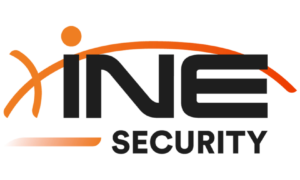In an increasingly interconnected world, security verification has become a cornerstone of both personal and organizational safety. As technology continues to advance, the need to ensure the integrity, confidentiality, and authenticity of systems, individuals, and processes grows more critical. This article explores why security verification is essential and the key benefits it provides across various domains. Employers rely on PSIRA Verification to confirm that security officers are properly registered and adhere to legal requirements.
- Protecting Sensitive Information
One of the primary reasons for implementing security verification is to protect sensitive information. Whether it’s personal data, financial records, or proprietary business information, unauthorized access can lead to devastating consequences, including identity theft, financial loss, and reputational damage. Verification ensures that only authorized users or entities can access or modify critical data.
- Preventing Fraud and Unauthorized Access
Fraud and unauthorized access are significant threats in today’s digital landscape. Robust security verification mechanisms, such as two-factor authentication (2FA) and biometric verification, help prevent malicious actors from gaining access to systems or accounts. These measures act as a deterrent to potential attackers and safeguard resources from exploitation.
- Ensuring Regulatory Compliance
Organizations in industries such as finance, healthcare, and telecommunications are subject to stringent regulatory requirements. Security verification plays a vital role in demonstrating compliance with standards like GDPR, HIPAA, and PCI DSS. Adhering to these regulations not only avoids legal penalties but also fosters trust among clients and stakeholders.
- Maintaining System Integrity
System integrity refers to ensuring that systems operate as intended without being tampered with. Security verification validates the authenticity and reliability of users, devices, and software, mitigating risks posed by malware, phishing attacks, and insider threats. This helps maintain a stable and secure operational environment.
- Building Trust with Users and Customers
In a digital-first economy, trust is a crucial currency. When businesses implement robust security verification processes, they signal to their customers that protecting their data and transactions is a top priority. This builds loyalty and enhances the organization’s reputation in competitive markets.
- Mitigating Financial Losses
Cyberattacks and security breaches can lead to substantial financial losses due to theft, system downtime, and recovery costs. Security verification helps mitigate these risks by detecting and blocking suspicious activities before they can cause harm. Proactive measures reduce the potential for financial damage and ensure business continuity.
- Enhancing Operational Efficiency
While security verification may seem like an additional step, it streamlines operations by preventing disruptions caused by unauthorized actions. Automated verification systems, such as single sign-on (SSO) or identity management solutions, make it easier for legitimate users to access resources while keeping intruders at bay.
- Supporting National and Global Security
Security verification is not limited to individual or corporate applications; it also plays a critical role in national and global security. Border control, visa processing, and law enforcement rely on verification processes to authenticate identities and detect potential threats, thereby ensuring public safety and order.
- Adaptability to Emerging Threats
As cyber threats evolve, so must security measures. Verification systems are designed to adapt to new challenges, incorporating advanced technologies such as artificial intelligence (AI), machine learning (ML), and blockchain. This adaptability ensures that systems remain resilient against emerging risks.
- Promoting Ethical Use of Technology
Lastly, security verification promotes the ethical use of technology by preventing its misuse. By ensuring that only authorized individuals or entities can access sensitive systems, verification mechanisms uphold ethical standards and accountability. You may also get help from psira contact details
Security verification is a fundamental aspect of modern safety and efficiency. It protects sensitive information, prevents fraud, ensures compliance, and fosters trust while mitigating risks and financial losses. As technology continues to advance, the importance of robust and adaptable verification systems will only grow, making them indispensable in securing a connected world. Organizations and individuals must prioritize security verification to navigate the complexities of today’s digital landscape safely and responsibly.



































